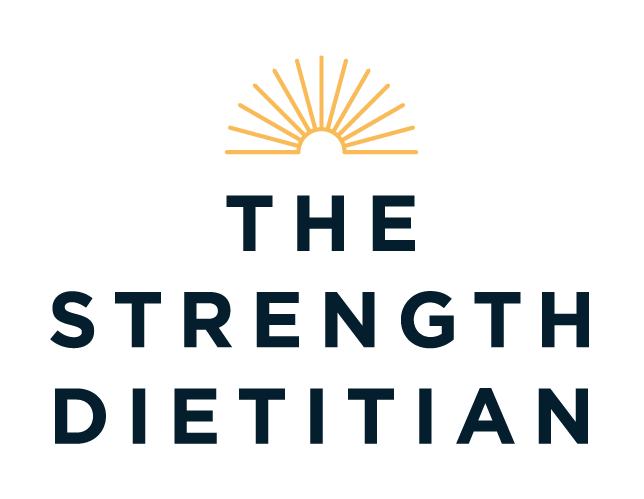Best way to gain muscle without fat – Read this before you bulk
The 5 Top Questions I get when it comes to muscle gain are:
1. How do I gain muscle fast without gaining fat?
2. What diet is best for muscle gain?
3. How many meals should I eat a day for muscle gain?
4. How do I track that I’m gaining muscle?
5. How much weight should I be gaining if I’m building muscle?
In this article, I will be answering these questions and giving you 6 tips to reach your physique and performance goals.
How to gain muscle effectively & minimise fat gain?
Slow muscle growth is the best option to gain lean body mass without gaining excessive fat mass.
It’s the best option because it is the only option (unless performance enhancing drugs are involved. Note: An entirely different nutrition strategy applies for this scenario.)
Jumping into too big of a surplus won’t make you gain muscle faster.
The most effective way to gain muscle fast while minimising fat gain is to go into a small daily surplus. I generally start by increase calories by 10% of current calories. This will allow you to have enough energy available to gain muscle, without gaining too much fat.
If you are maintaining on 2000 calories per day, increasing by 200 calories is a good start.
If you are unsure what your usual calorie intake is, you can start with increasing your intake around 200- 250 calories.
That means an extra snack a day. Not an extra snack pack.
How to track that you are gaining muscle? How much weight should I be gaining if I’m building muscle?
2. Aim for 0.25- 0.5% body weight increase each week!
Remember, building muscle is an energy-expensive process and eating enough calories is needed. Start with the 10% increase in calories and monitor your weight. If you are not gaining any weight or gaining too fast than adjust your calories by another 100-200 calories until you have reached the 0.25- 0.5% body weight increase each week.
E.g. A 80kg person might aim for 200g – 400g increase in body weight per week.
Vs a 50kg person might aim for 125-250g increase in body weight per week.
What diet is best for muscle gain?
3. The best diet for muscle gain is a high protein diet that you can stick to.
Aim for 1.6- 2.2g protein/ kg bodyweight/ day from a variety of protein sources.
Total protein and energy intake are the most important to hit every day.
Some healthy high-protein foods to incorporate more in your diet include:
- fatty fish high in omega 3 (salmon, trout, tuna)
- kangaroo (a lean red meat)
- yoghurt (soy alternatives are great for vegetarians and vegans)
- eggs and egg whites
- tofu
- chickpeas and hummus
- tempeh
- edamame beans
4. Don’t get sucked into “if it fits your macros”
Too often, I see individuals playing around with if it fits your macros (IIFYM) and forgetting that the basic nutrition principles don’t change for muscle gain. You still need a strong foundation of muscle-building protein, energising carbohydrates, heart-healthy fats, fibre and all the vitamins and minerals from food. Yes, you can technically hit your macros without eating a single vegetable but you’re going to feel pretty terrible. If your diet is sub-optimal, your training and results will be too.
5. Intermittent fasting is likely making it harder for you to gain muscle.
While there is nothing inherently wrong with intermittent fasting, if you are trying to maximise muscle gain, intermittent fasting will be less than ideal. This is because you’re missing out on the opportunity to grow muscle in your extended fasting periods.
How many meals should I eat a day for muscle gain?
6. Eat at least 3 protein-rich meals per day.
While total protein and energy intake is the most important thing to focus on, you can also increase muscle gain by focusing on meal timing once you’ve nailed the first two.
Spreading out your protein intake evenly across the day allows for positive protein balance and more opportunity for your muscle synthesis to be stimulated and for muscle to be built.
References:
Carbone, J. W., & Pasiakos, S. M. (2019). Dietary Protein and Muscle Mass: Translating Science to Application and Health Benefit. Nutrients, 11(5), 1136. https://doi.org/10.3390/nu11051136
Schoenfeld, B.J., Aragon, A.A. How much protein can the body use in a single meal for muscle-building? Implications for daily protein distribution. J Int Soc Sports Nutr 15, 10 (2018). https://doi.org/10.1186/s12970-018-0215-1
Slater, G. J., Dieter, B. P., Marsh, D. J., Helms, E. R., Shaw, G., & Iraki, J. (2019). Is an Energy Surplus Required to Maximize Skeletal Muscle Hypertrophy Associated With Resistance Training. Frontiers in nutrition, 6, 131. https://doi.org/10.3389/fnut.2019.00131
Morton RW, Murphy KT, McKellar SR, et al. A systematic review, meta-analysis and meta-regression of the effect of protein supplementation on resistance training-induced gains in muscle mass and strength in healthy adults. British Journal of Sports Medicine 2018;52:376-384.



